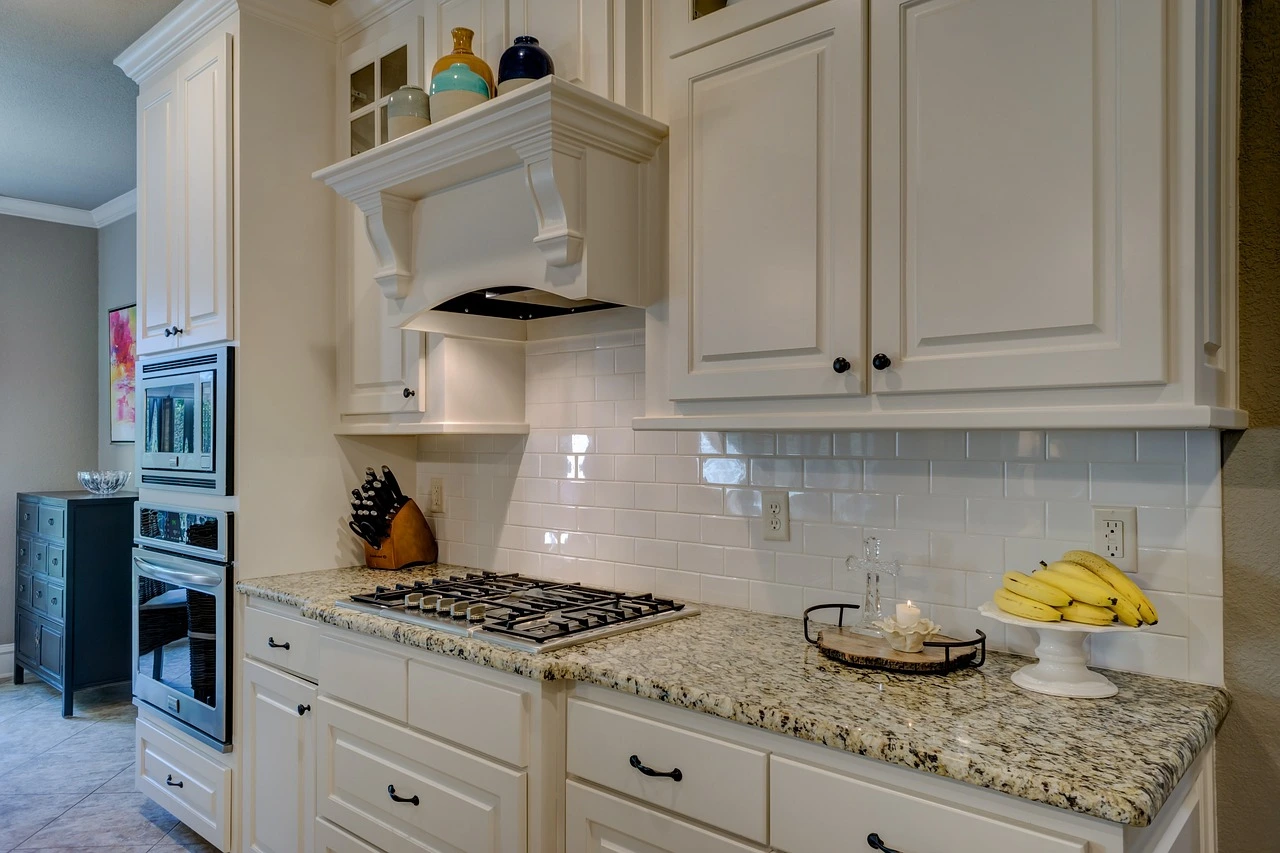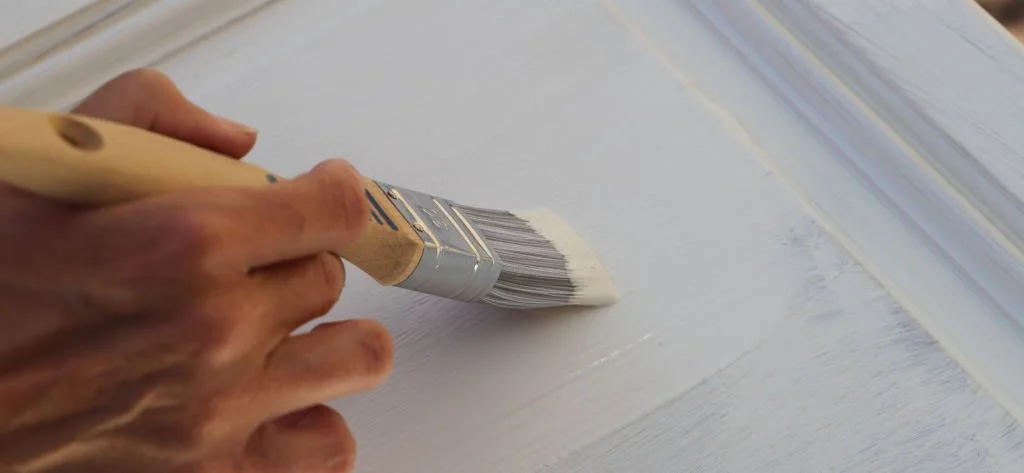
Do you need special paint for kitchen cabinets? No, there are no special paints exclusively for kitchen cabinets, but it is crucial to use paint specifically designed for kitchens. These paints offer humidity and moisture resistance, as well as sealant protection against water damage. The best paint options for kitchen cabinets include semi-gloss, gloss, or satin finishes, and hybrid enamel paint is a best choice. It is also important to consider the primer used before painting.
Revamping your cabinets?
Wondering if customized paints are necessary?
Let’s explore the effectiveness of high-quality hybrid enamel paint.
Discover the benefits of finishes like semi-gloss, gloss, or satin.
I’ll delve into the importance of durability, ease of cleaning, and the role of a good primer in achieving impeccable results.
Key Takeaways
- Customized Paints Not Mandatory: While there are no customized paints exclusively made for kitchen cabinets, it is important to use paint specifically designed for kitchens due to the high humidity and moisture levels.
- Resisting Humidity and Moisture: Customized kitchen paints are formulated to withstand humidity and moisture, offering protection against water damage with the inclusion of a sealant.
- Durable Finishes: Semi-gloss, gloss, or satin finishes are recommended for cabinets as they resist moisture, grease, and everyday wear and tear.
- Hybrid enamel paint: Opting for hybrid enamel paint provides durability and easy cleanup, making it a suitable choice for painting cabinets.
- Recommended Primers: Benjamin Moore Styxx or Sherwin-Williams Extreme Bond are suggested primers, followed by using Sherwin-Williams Emerald Urethane Trim Enamel for painting cabinets.
- Specific Consideration for Certain Cabinets: Cabinets made of plastic laminate or thermofoil may require customized paints and techniques to ensure better paint adhesion.
- Focus on Durability and Cleanliness: Select paints that are durable, long-lasting, and easy to clean to ensure your cabinets look great and last longer.
Best Types of Paint for Kitchen Cabinets
Compare Types of Paint
| Paint Type | Oil-based Paints | Latex Paints | Acrylic Paints | Hybrid Enamel Paint |
|---|---|---|---|---|
| Durability | High | Moderate | High | High |
| Drying Time | Longer | Quick | Quick | Quick |
| Odor | Strong | Minimal | Minimal | Minimal |
| Cleanup | Requires solvent | Soap and water | Soap and water | Soap and water |
| Heat Resistance | Yes | No | Yes | Yes |
| Moisture Resistance | Yes | No | Yes | Yes |
| Price | Affordable | Affordable | Moderate | Moderate |
| Environmental Friendliness | Low | High | High | High |
Based on my experience, each type of paint has its advantages.
Oil paints are best for highly durable cabinets, while latex paints are suitable for projects that require quick completion.
Acrylic paints offer a balance of durability and easy cleanup.
However, I highly recommend hybrid enamel paint for its remarkable combination of durability, low maintenance, and exceptional finish.
1. Oil Paints
Oil paints offer durability and a smooth finish, making them suitable for cabinets that face heat and moisture. However, they have a longer dry time, stronger odor, and require a solvent for cleanup.
In my experience, these paints are most effective in high-traffic kitchens that prioritize durability.
2. Latex Paints
Latex paints, also known as waterborne paints, offer quick dry time and easy cleanup with soap and water. They have less odor and are more environmentally friendly than oil paints. However, they may not be as durable.
In kitchens where quick project completion was crucial, I have successfully used latex paints.
3. Acrylic Paints
Acrylic paints are waterborne paints with added acrylic resin for enhanced durability. They combine the easy cleanup of latex paint with the durability of oil paints, although they can be more costly.
I’ve found these paint to be a great choice for cabinets, providing a hard, durable finish that withstands the rigors of a busy kitchen.
4. Hybrid Enamel Paint
Hybrid enamel paint combines the durability of oil paint with the low-maintenance properties of waterborne paints.
It offers a hard and resilient finish, ideal for high-traffic areas like kitchens.
The paint adheres well to surfaces and requires less prep work compared to traditional oil paints.
Its low VOC content ensures fewer fumes and easy cleanup.
Maintenance becomes effortless with its smooth finish, making it ideal for busy families.
I have been consistently impressed by the hybrid enamel paint due to its remarkable durability, convenience, and transformative effects on cabinets.
For a long-lasting and visually stunning finish, I highly recommend trying hybrid enamel paint.
Special Paint vs. Regular Paint
Why Do You Need Customized Paint For Kitchen Cabinets?
Cabinets face unique challenges such as moisture, grease, and heavy use. It’s crucial to choose a paint that can endure these factors and maintain its appearance over time.
Customized paints for cabinets are designed to provide a durable and smooth finish, capable of withstanding the heat, moisture, and frequent cleaning associated with kitchens. They often include self-leveling properties for a professional look.
When I wanted a top-notch, long-lasting finish, I relied on customized cabinet paints known for their durability and quality.
Kitchen paint is specifically formulated for high-traffic surfaces like cabinets, offering enhanced durability and better adhesion compared to regular paint. It ensures that your cabinets maintain their beauty and integrity even with daily use.
Choosing the right paint for your cabinets is essential to achieve a stunning transformation that will stand the test of time.
Pros
- Improved durability
- Better adhesion to surfaces
- Enhanced resistance to moisture, grease, and scratches
Cons
While customized paint for cabinets can offer several benefits, there are also some potential drawbacks to consider:
- Cost: Unique paints for cabinets are often more expensive than regular paints. If you’re working on a tight budget, this could be a significant consideration.
- Availability: Unique paints may not be as readily available as regular paints. You might need to visit a specialty store or order online, which could take more time and potentially increase costs.
- Limited Color Options: While regular paints come in virtually unlimited colors, customized cabinet paints may have a more limited palette. If you have a specific shade in mind, you might not find it in a unique cabinet paint.
- Application Difficulty: Some customized paints may require a more complex application process, which could include additional prep work or a specific application technique. For DIYers, this could make the painting process more challenging.
- Longer Drying Time: Certain types of customized cabinet paints may take longer to dry than regular paints. This could extend the overall time required for your kitchen cabinet painting project.
- Potential for Overkill: If your cabinets are in good condition and don’t see heavy use, customized paint might be overkill. High-quality regular paint could be more than sufficient for your needs.
The Case for Regular Paint
Regular paint can also be used for cabinets, especially if it’s a high-quality 100% acrylic paint. It can be a good choice if you’re on a budget or if the cabinets are not heavily used. However, it may not be as durable as customized cabinet paint, and additional steps like applying a primer and a protective topcoat may be necessary.
Limitations
- Less durable
- May not adhere as well to surfaces
- Less resistant to moisture, grease, and scratches
How to Choose the Right Paint for Your Kitchen Cabinets
Now that we’ve covered the basics, let’s delve into the process of choosing the right paint for your cabinets.
Step 1: Determine Your Finish Preference
As mentioned earlier, glossy finishes are a popular choice, but there are other options to consider, such as semi-gloss, satin, or matte finishes. The choice ultimately depends on your personal preference and the overall aesthetic you want to achieve in your kitchen.
Why Choose a Glossy Finish?
Glossy finishes are highly reflective, giving your cabinets a modern and sleek appearance. But that’s not all! There are other benefits to choosing a glossy finish for your cabinets.
Advantages
- Easy to clean
- Reflects light, making your kitchen appear brighter
- Resistant to stains and moisture
Drawbacks to Consider
- Shows imperfections more readily
- May not be suitable for a more traditional or rustic kitchen design
Step 2: Water-Based vs. Oil-Based Paint
There are two primary types of paint you’ll encounter when shopping for cabinet paint: water-based and oil-based.
Waterborne Paint
- Pros: Low VOCs, quick drying, easy cleanup
- Cons: Less durable, may require multiple coats
Oil Paint
- Pros: Superior durability, smooth finish
- Cons: Higher VOCs, longer dry time, more challenging cleanup
See more: Water-Based vs. Oil-Based Paint
Step 3: Choosing The Right Color Of Paint For Your Kitchen Cabinets
Choosing the right paint color for your cabinets is crucial as it can significantly influence the overall ambiance of your kitchen. Factors such as the size of your kitchen, the amount of natural light it receives, and your overall decor should be considered.
For smaller kitchens, lighter colors like white or off-white can make the space appear larger and brighter. For larger kitchens, you have more flexibility to experiment with bold colors.
Remember, your kitchen should reflect your personal style. Don’t be afraid to choose a color that makes you happy. I’ve seen kitchens come alive with the right color choice, from soft whites to bold blues and even vibrant greens.
Step 4: Prep Your Cabinets
To achieve professional results, take the time to properly clean, sand, and prime your cabinets before painting. Proper preparation will ensure better adhesion and a longer-lasting finish.
See More: Painting Kitchen Cabinets For Beginners (5 Easy Steps)
FAQ
Can I use regular wall paint for my cabinets?
While you can technically use regular wall paint for your cabinets, it may not provide the durability and finish that customized cabinet paint offers. Cabinets are subject to frequent use and cleaning, so a more durable paint is generally recommended.
How does customized paint for cabinets differ from regular paint?
Customized paint for cabinets is formulated to be more durable and resistant to chipping, peeling, and staining. It also provides a smoother finish, which can enhance the look of your cabinets.
Is it necessary to prime cabinets before painting them?
Yes, it’s generally recommended to prime cabinets before painting them. Primer helps the paint adhere better to the surface and provides a base for the paint to show its true color.
Conclusion
In summary, you need to use special paint for kitchens cabinets. Using unique paint instead of regular paint can make a big difference in the longevity and appearance of your cabinets. It is specifically formulated for the unique needs of cabinets, offering a higher sheen level, thicker consistency, greater durability, better adhesion, and increased resistance to moisture and humidity.



